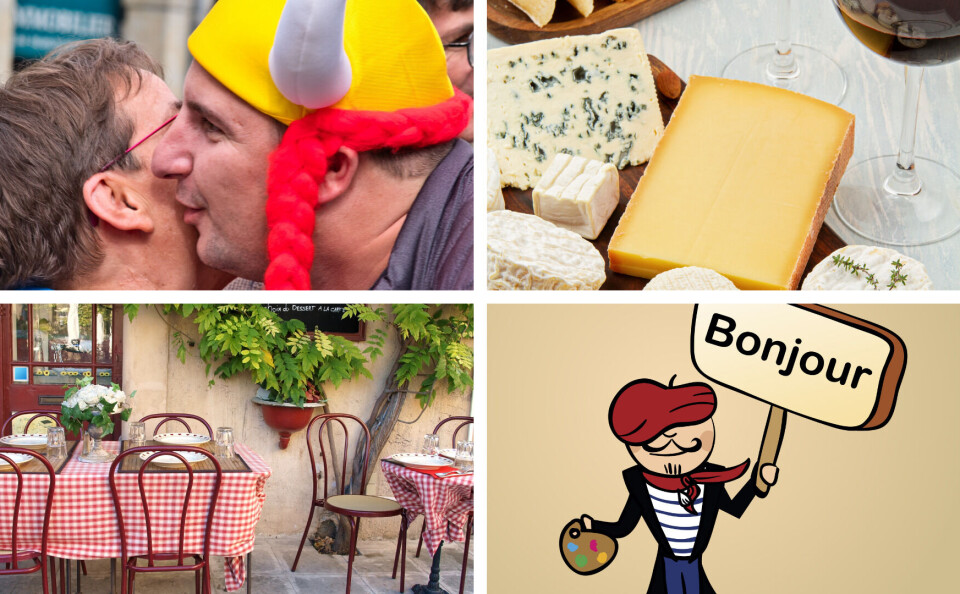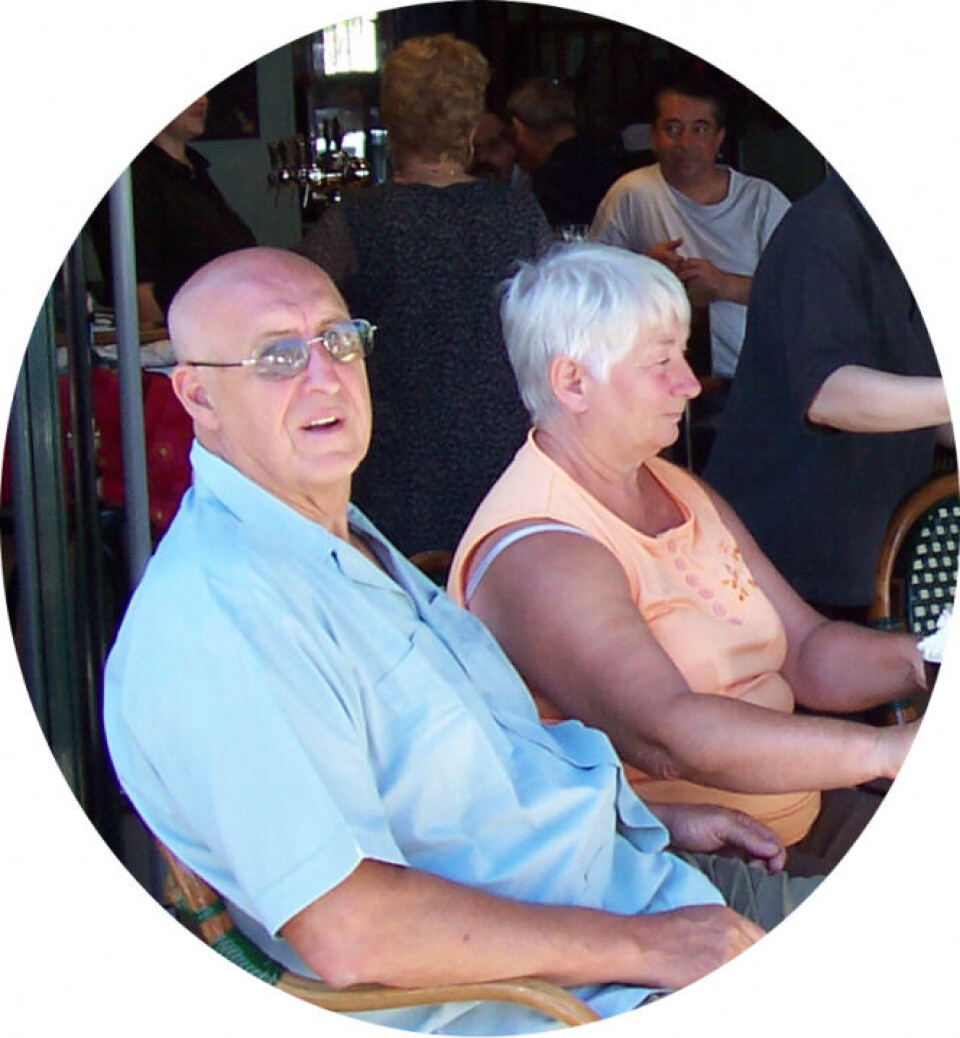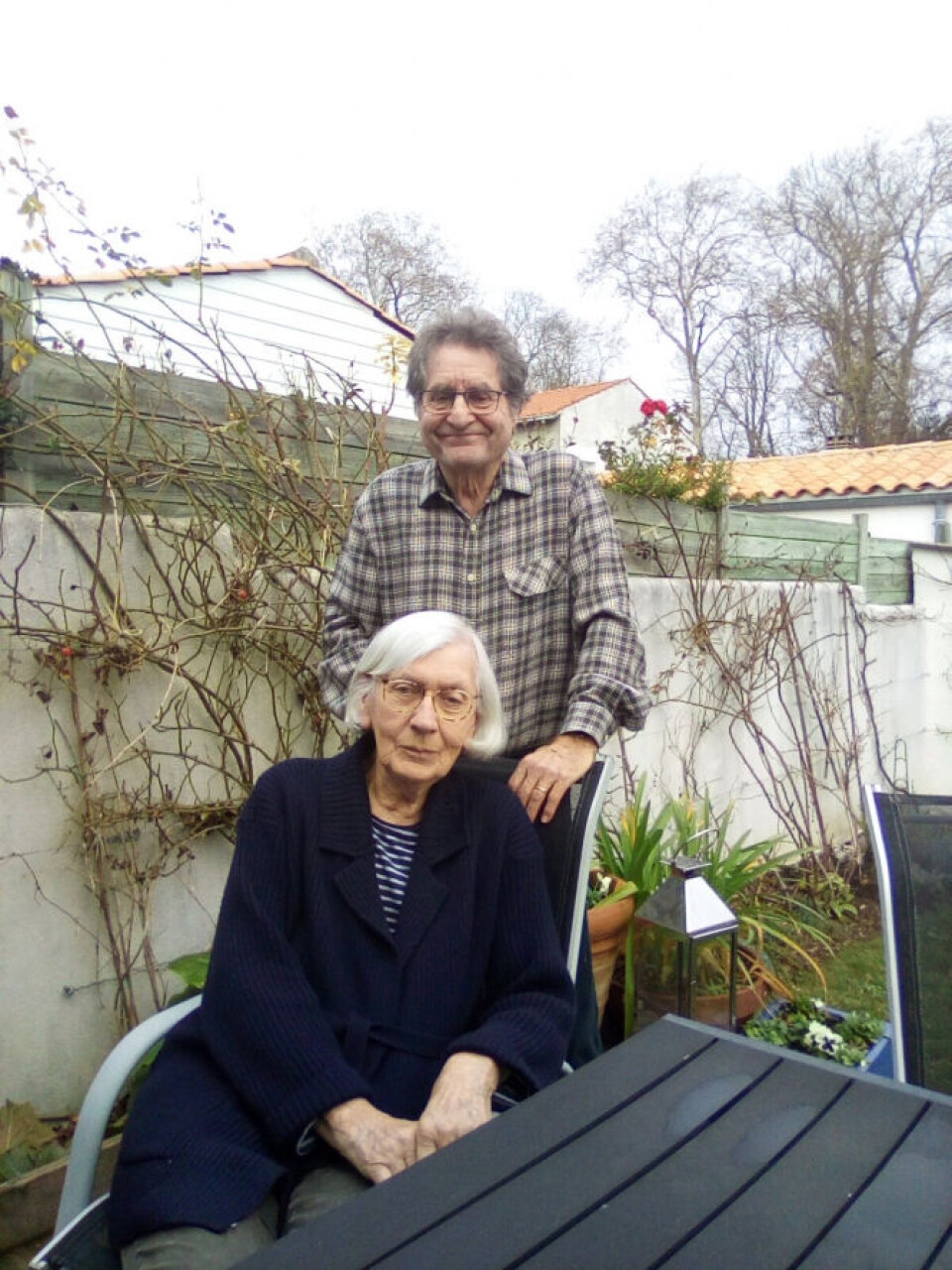-
Why I love where I live... in Nantes
Reader Sue Alouche, 66, and her French husband set up 'Knowing Nantes', a network for the anglophone community in the city
-
From civil servant to vacataire, clinical psychologist and super mum
Reader Flavia Campos, 44, explains how a move to Lille brought the variety she craved
-
Why we bought horses after moving to France – and what it taught us
When reader Sam Barcham, 48, moved from England to the south of France, she never anticipated that riding lessons would lead to buying three horses of her own
Aperos, choirs, cars, cards: Readers’ French integration successes
We asked how you define and measure ‘cultural integration’ and how important language skills are - here we share some of the replies we received

Thank you to all who responded to our call for feedback on ‘cultural integration’ in France. Find below a selection of the replies. We had to edit down some of the longer replies but we appreciate the engagement and the detail that was provided.
The responses are all unique, but there are some similar themes, such as how important trying to speak French is, the importance of joining clubs and chatting to neighbours, and the impact and changes since Brexit. There is even one story of bovine midwifery, which according to the reader is a sure way to integrate.
We have mainly included only the initials of readers who responded, except for those who provided photos.
Please let us know at news@connexionfrance.com if you agree or disagree with answers, or if you have a different take on being integrated in France.
Do you feel integrated in France and, if so, how do you measure and define that?
‘I would not want to pretend that this is always easy’
I do feel that at least a basic level of the local language is a perfectly reasonable requirement for anyone applying for rights of residence wherever that might be.
In my own case, I decided to apply for French nationality, but I think that even without that, I would have taken the steps to integrate that I have taken.
I frequent local shops and markets, and get to know the local merchants and what is going on locally. I set up a link between my local village school and a school in Cornwall in the small town where my daughter used to live. I show up for local events, and am now trésorière adjointe on the comité des fêtes, even though I am often away. I socialise with neighbours in our village, and friends I have met at events, such as local music schools.
I would not want to pretend that this is always easy. Sometimes I really have to gear myself up to go along. But it really is worth it. I now know people to ask in the event of a variety of issues, and the slight suspicion which I used to sense in the regard of some people has largely faded away. I do feel integrated, and as a result, very much at home. R.A.
‘Don't be afraid to seek help’
I came to Normandy 30 years ago, and I still live here now, in our fourth house: A six hectare animal farm where I breed the wonderful Selle Français competition horses. I feel well and truly integrated.
All I can say is, don't be afraid to seek help even if it's the local mairie or the pharmacy. Don't worry about the language problem as long as you try, never apologise, but as long as one shows keenness and acceptance to integrate then locals will accept the new French person. My motto is ‘be curious, think differently, and don't wake up today to be mediocre’. C.J.L.
‘Make as much effort as possible’
Don't you think speaking French on a bit more than "some level" is part of integration? Don't you find that discussing with your plumber instead of pointing is more satisfactory. Or how about communicating with your children’s teachers, or the doctor or the manager of the supermarket when you return stale crisps?
Make as much effort as possible, collect as much vocabulary as you can, and launch into speaking.
Remember you chose this country, France did not choose you! E.H. - An American who has lived in France since 1987
‘Put yourself forward’
We arrived in France in December 2005 to a little hamlet called Les Nébilons, in the Centre Region. We had no wood in stock for heating so I asked where to get some wood from. I was told that a family in the village sold wood so I walked around to their house to ask if I could buy some and get it delivered before Christmas.
I was invited in and asked if I would like a drink and if so what would it be. I said do you have Pineau des Charentes, to which my host’s eyes lit up and he said, ‘all French have Pineau des Charentes, would you like red or white?’
Because I knew and liked Pineau it seemed to be the ice breaker. At this time my French was very very limited so the family called in their daughter to translate as she knew some English.
I stayed there for just over two hours and I was asked many questions, the main one being was the house I had just bought a maison secondaire or a maison principale.
When I said maison principale they started to talk more about the village and its people. I said that when we are fully settled in we would like to participate in the village activities.
My wood was delivered the next day. We met the family several more times in early 2006 and were introduced to other families, especially our immediate neighbours.
So the moral of the story is that if you want to be integrated, put yourself forward and the French will be only too pleased to embrace you, language proficient or not. Malcolm & Enid Hicks

‘You are integrated when…’
When you have made an effort to learn the language and got to know your neighbours so that they feel welcome to visit your home.
When you are invited for an 'apero' from time to time and you accept graciously.
When you ensure that the majority of your friends are French and not English.
When you choose to have coffee in your local bar/cafe and not the most 'up-market' coffee shop.
When you share something of your culture with your French friends, e.g. recipes or baking, and show your pleasure when given a homemade gift such as fruit, vegetables, pots of jam etc. and you are happy to return the compliment occasionally.
When you are happy to put yourself out of your way a little to help elderly and/or disabled neighbours with everyday tasks such as shopping or delivering something they cannot deliver themselves.
When you have taken time to discover local customs.
Then...having made an effort with all of the above, we begin to become integrated and, with certainty, to feel we belong.
French people, especially in small villages, love to meet with 'les anglais' and are rather proud to have us as friends. In return, they offer kindness, good company, generosity of spirit and friendship. M.C.
‘Try and find a club or association’
Although my French is horrible, I am a member of Rétromobiles de la Mée (a classic car enthusiasts club). I have vintage vehicles, and am a radio amateur. I also engage with French people and now have naturalisation.
My suggestion to those who cannot speak meaningful French is to try and find a club or association where your past can be of assistance. R.M.
‘Since Brexit, the atmosphere has changed’
We've been living in France since 2004. My husband came here from the UK to work on a company transfer in 2002 and accepted a permanent post in 2004.
We are the only Brits in our village. We both speak good French, most of our friends are French, we enjoy a drink in the village bar and shop in the local épicerie et boulangerie.
Prior to Brexit we felt integrated, welcome and happy to be here. Since Brexit the atmosphere generally has changed.
When visiting the hospital I have twice been asked by other patients if I pay for my treatment here (my husband works and we have his company-organised mutuelle).
Both people were annoyed when I replied that yes we did, and asked if they had any idea how many French people living in the UK received medical care there.
I foresee the situation becoming more difficult for British expats here. The attitude of the French government towards the UK and [President Emmanuel] Macron's determination to strengthen France's position in Europe - although no one seems to know what that is, apart from the Franco-German alliance to maintain control - will lead to strong resistance from the other member states and create further difficulties.
We have 10-year residency permits and our income following retirement will be generous.
However, I do feel that it will be in our long-term best interests to sell up and return to the UK rather than increasingly be made to feel we are unwelcome 'outsiders' in France. A.W.
‘I love France’
I do feel socially integrated.
My parents lived in France for 40 years and the house is my second home. Mum knew the mayor as a baby and helped with harvesting tobacco. I speak French well enough to talk about most things, unless it’s technology.
I love France and many French people.
I don’t like the way politics is driving a wedge between the UK and France at the moment - let’s get back to being allies, even with horrible Brexit. L.M.
‘Benefit from les clubs du 3ème âge’
In the southwest of France, the Third Age groups (les clubs du 3e âge) are a wonderful way for retired people to integrate and enjoy the amazing panorama of interaction from local history, to gyms via outings, luncheons and weekly activities such as afternoon scrabble, games and cards.
It does require a certain level of understanding of the language but it also ensures improvement in spoken French. T.W.
‘The power of French TV’
After 23 years of living here my husband and I certainly feel well integrated. This has doubtless been helped by my being a fluent French speaker before we moved, although my husband has had to learn French virtually from scratch.
This he has done through distance learning classes through the CNED (The National Centre for Distance Education), but also mixing with our French neighbours from the beginning.
For the first few years we had only French TV which meant that we knew what was happening in the country and locally and we also read, or at least looked at French newspapers. Even if you don't understand everything it does give you an insight into what may be the concerns of your neighbours.
We also made a point of using French firms when we needed help with our renovation works. This meant that we had a network to call on in an emergency and also were dealing with people who understood the not inconsiderable French bureaucracy.
I was elected to our local council, which was the result of an approach by the mayor who was having problems filling the list!
We have close French friends, which is particularly appreciated in these times when friends and family from the UK find coming over more difficult. We also joined the local branch of the Parti socialiste (we had both been involved in politics in the UK), which led to good social contacts. As did joining the local Club Des Ainés (elderly persons club).
We both learned to play Belote (a card game).
Now that we have moved from the country to La Rochelle we have taken an allotment, which is another opportunity to chat to fellow gardeners. My husband also joined a local walking group which he enjoys.
So all in all we would claim to be fairly well integrated and in the end we have both arranged to donate our bodies to the local teaching hospital to show our appreciation of all the excellent care we've had!
I forgot to add that we were both naturalised French with dual nationality in 2011. A wonderful occasion attended by our mayor, MP and senator. Eva Barnes

‘You must join in’
Trying to learn and use the French language is vital if British people truly want to integrate in France. Many French people - neighbours, association members, bénévoles (volunteers) are very willing to invite English speakers to their homes and share activities with them.
However, if all they get in return is a ça va, a fixed smile, puzzled looks and an inability to answer the usual questions… then the British person will feel excluded, nervous, unable to communicate and embarrassed. It is not likely that they will want to put themselves in this position again.
My advice has always been that you must join in something…anything! it does not have to be a passion of yours. Enthusiasts love to talk and try to interest others... What a good way of listening and learning. Be willing and notice any written instructions all the time, like way out, push, pull, opening hours, etc.
You must also prepare yourself for failure. You will sometimes win through, but just accept that you will get things wrong and need to be philosophical about it. Integration sounds fine until you try to come up with a way to do it.
My hubby and I joined a French choir when we were 57. This was a fantastic way to integrate.
If you are of a religious faith and the local church is relevant to you this is really a brilliant way of integrating... lots of social activities around a church. P.G.
‘Bovine midwifery’
There are plenty of ways that you can try and become culturally integrated in another country by getting actively involved in local activities, but I think it's when someone asks you, out of the blue, to help them that you get the feeling that you belong. An early experience springs to mind:
My neighbour, Hervé, appears and asks me to help him deliver a calf.
He gives me a bucket of water and tells me to wait for instructions. Another neighbour's dog arrives and becomes a nuisance. I take off my belt and tie him to a post. Hervé catches the reluctant first-time mother, I try to make sure she doesn't bolt while he ties ropes to the calf's hooves (which arrive first) and he leans back almost horizontal to help the baby into the world.
A few seconds pass and it arrives. I am summoned over with the water. It's purpose? To pour on to the calf's ears to stimulate consciousness. Mothers usually lick their baby's ears, which this one eventually did but she was a first timer and Hervé wasn't taking a chance.
I then suffer a wardrobe malfunction and realise the dog is trying to strangle itself on my belt!
Suitably educated in bovine midwifery, I felt no awkwardness in asking Hervé for help at any time afterwards. I felt integrated. A.D.
‘It will take time’
Both my wife and I love France: the culture, environment and people are second to none.
As new residents, we are learning the language through a French teacher, but know it will take time to integrate fully with the French way of life. S.H.
‘Beware the siesta!’
After 30 years here I consider myself fully integrated in France. Here are some of my ideas on the matter…
Understand the rhythm of life, meal times, children's bedtimes, a ritual snack time at 16:00.
Learn about aperitifs organised at the last minute: take a bottle of wine, a bag of peanuts and expect a late night.
Don’t phone or knock on someone's door between 14:00 and 16:00: L'heure de la sieste!
Realise that the sense of humour is different from your own and take it easy on jokes until you know the people.
Don’t blurt out ‘we don't do it like that where I come from’.
Eat and enjoy French cuisine when invited but don't try and do it yourself for guests. They prefer your own traditional meals.
Always try to communicate, even if it's sign language or body language.
Always say bonjour to each separate person in a group. Shake hands or kiss them (not now because of Covid, of course). Don't miss anyone out.
Expect to shake hands or kiss every new person who enters the room.
Always have a bit of clear space at the kitchen table for a cup of coffee and some biscuits for an unexpected visitor who might stay a while!
Avoid bringing up the subjects of money, politics or religion. Your own views will probably be very different from the majority of the other people and can become frustrating when you can't get your point across. J.C.
Related stories:
‘Unsure where I belong after French nationality interview’
Australian ordered to leave France after applying for residency permit
Obtaining French nationality can take up to four years, study shows
























